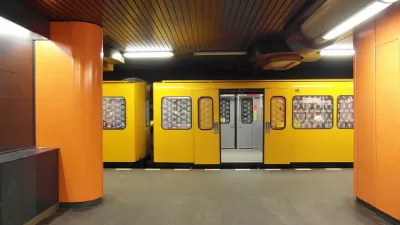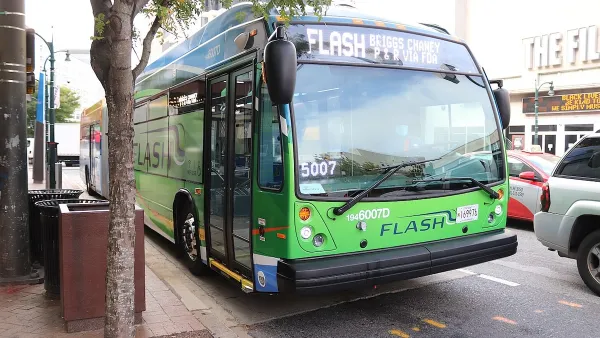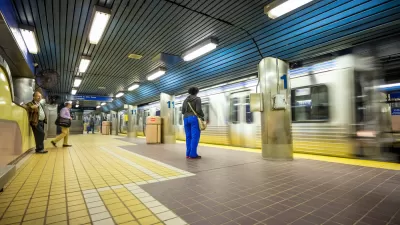Mass demonstrations in Brazil over the past week were sparked by increases to bus fares. But what if buses were free? The Economist makes the argument that, to improve service and decrease congestion, we should study making buses and subways free.
"Fares bring in a lot of money, but they cost money to collect—6% of the MTA's budget, according to a 2007 report in New York magazine. Fare boxes and turnstiles have to be maintained; buses idle while waiting for passengers to pay up, wasting fuel; and everyone loses time," explains The Economist's Gulliver blog. One idea, floated recently by Slate blogger Matt Yglesias, would be to implement proof-of-payment systems instead.
However, "[p]roof-of-payment systems don't solve the problem of fare-collection costs as they require inspectors and other staff to handle enforcement, paperwork and payment processing," says The Economist. "Making buses and subways free, on the other hand, would increase passenger numbers, opening up space on the streets for essential traffic and saving time by reducing road congestion."
The idea has been proposed in New York (as long ago as 1965 says The Economist), and implemented in several European cities. Is it time that free transit gets a closer examination?
FULL STORY: Maybe buses should be free

Maui's Vacation Rental Debate Turns Ugly
Verbal attacks, misinformation campaigns and fistfights plague a high-stakes debate to convert thousands of vacation rentals into long-term housing.

Planetizen Federal Action Tracker
A weekly monitor of how Trump’s orders and actions are impacting planners and planning in America.

In Urban Planning, AI Prompting Could be the New Design Thinking
Creativity has long been key to great urban design. What if we see AI as our new creative partner?

Pedestrian Deaths Drop, Remain Twice as High as in 2009
Fatalities declined by 4 percent in 2024, but the U.S. is still nowhere close to ‘Vision Zero.’

King County Supportive Housing Program Offers Hope for Unhoused Residents
The county is taking a ‘Housing First’ approach that prioritizes getting people into housing, then offering wraparound supportive services.

Researchers Use AI to Get Clearer Picture of US Housing
Analysts are using artificial intelligence to supercharge their research by allowing them to comb through data faster. Though these AI tools can be error prone, they save time and housing researchers are optimistic about the future.
Urban Design for Planners 1: Software Tools
This six-course series explores essential urban design concepts using open source software and equips planners with the tools they need to participate fully in the urban design process.
Planning for Universal Design
Learn the tools for implementing Universal Design in planning regulations.
planning NEXT
Appalachian Highlands Housing Partners
Mpact (founded as Rail~Volution)
City of Camden Redevelopment Agency
City of Astoria
City of Portland
City of Laramie





























